Exhausted and Weary EU Is Looking for the Smallest Common Denominator of its Unity
Adelina Marini, June 27, 2015
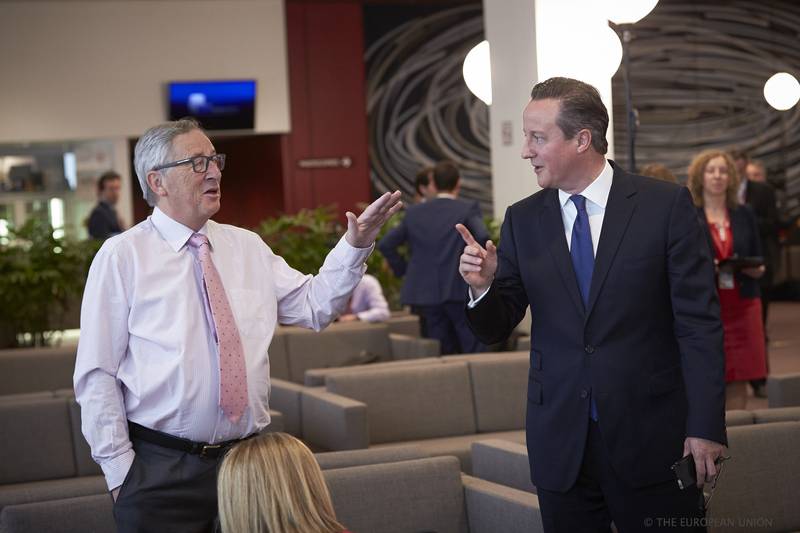 You know that moment of tiredness when you wish so bad for it all to be over, even something you have put hard work into for years. That moment came on Thursday night in the EU when the leaders of the 28 member countries negotiated, or rather, as sources claim, quarrelled fearsomely and not over Greece as you might think, but over what is to be done with 60 thousand refugees. Weariness of the two hot potatoes in the summit’s agenda – GRexit and BRexit – was so great that the leaders hardly touched on the subject. However, tiredness and the already present demoralising effect of the difficulties in reaching European unity forced the leaders to say some ugly truths to each other’s face. But let’s do this in order (of the agenda).
You know that moment of tiredness when you wish so bad for it all to be over, even something you have put hard work into for years. That moment came on Thursday night in the EU when the leaders of the 28 member countries negotiated, or rather, as sources claim, quarrelled fearsomely and not over Greece as you might think, but over what is to be done with 60 thousand refugees. Weariness of the two hot potatoes in the summit’s agenda – GRexit and BRexit – was so great that the leaders hardly touched on the subject. However, tiredness and the already present demoralising effect of the difficulties in reaching European unity forced the leaders to say some ugly truths to each other’s face. But let’s do this in order (of the agenda).
Greece is no longer our problem – take it, or leave
Over the last few days everyone in Brussels had their attention focused on Greece. It is the first time I recall two summits and three Eurogroup meetings were held in a single week. With no result. Last chance is on Saturday when at five in the afternoon (CET) the finance ministers of the Eurozone will convene for one more meeting, probably the last one. It is too early to say whether this will solve the problem, but it became clear from numerous statements that Greece has been served an ultimatum. “Leaders have agreed there is no need for another Euro Summit, not tomorrow or over the weekend. Leaders expect the Eurogroup to conclude this process at their meeting on Saturday”, said European Council President Donald Tusk, who also chairs Eurozone meetings at the start of the press conference at 3 am on June 26.
European Commission President Jean-Claude Juncker, who is a veteran in European politics and in battling the Greek crisis, showed very unusual behaviour. He left aside his renowned sense of humour and sarcasm on Friday morning and started right off with a complaint. “So, I protest against this working method. I'm still awake but tired. But when you're tired you don't always take the right decisions. I really don't appreciate this working method which is hugely inconvenient and prevents my sleeping like a modest, average, mortal citizen”. He mentioned there had been talks on the Greek subject, albeit brief, but refused to share his opinion at that hour.
Bulgarian Prime Minister Boyko Borisov said on Friday morning that the European Council would no longer deal with Greece. “We will no longer deal with the problem called Greece because this problem is from the time of Karamanlis. Then Papandreou, then Samaras, and I asked them yesterday [26 June] to pull out some statistic data on how many Councils have we had until 3-4 am dealing with this subject and every time there is a Plan A, Plan A, Plan A, a year goes by, then a second, then a third and I asked my colleague Alexis just one question – in six months are they going to be ready to continue the reforms on their own or not”, the Prime Minister told journalists.
According to unofficial information the finance ministers have been made an offer to extend the Greek bailout program once more. This time by five months, to November. If this is accepted, Greece will have at disposal a total of 15.5 billion Euro – 8.7 billion from the temporary crisis resolution mechanism of the Eurozone (EFSF), 3.3 billion SMP profit (from the trading of Greek bonds), and 3.5 billion from the International Monetary Fund. In the event of a favourable conclusion of negotiations on Saturday Greece will immediately receive 1.8 billion Euro to make its payment to the IMF and thus evade bankruptcy. By the look of the spirits in Brussels this will be a “take it or leave it” offer.
A BRexit too?
Expectations at the eve of the summit were that there would not be much time and appetite for what interests British Prime Minister Cameron and it turned out even worse. Mr Tusk noted as a last subject in his statement that Cameron presented his plans for having an in/out referendum in the United Kingdom and that this represented the first step in “a longer process”. The leaders are to come back to this topic in December. David Cameron himself said he was delighted that the process is now properly underway and Boyko Borisov added that the subject was hardly discussed as it was getting way too late. According to Reuters, after the talks on Greece and the heated discussion on migration Donald Tusk asked the British Prime Minister to fit into a couple of minutes around midnight.
The Guardian quotes an EU diplomat in saying “A commercial break” just as Cameron was about to begin speaking. After his speech there were no comments. Another exit in this extremely difficult week is too much even for seasoned veteran leaders. Meanwhile in the British delegation news broke out that David Cameron is going to hold the in/out referendum without having received any guarantees from his European colleagues that the reforms he proposed would be ratified on time for the vote, which gave grounds for attacks by the opposition of Labour and UK Independence Party (UKIP).
If this is your union you can keep it
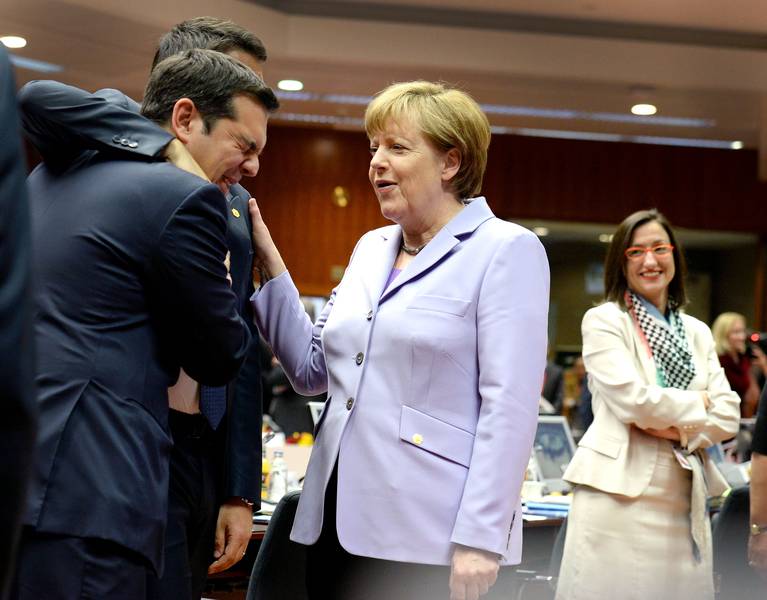 If Greece and Great Britain are failing to break apart the Union so far, migration had the chance to successfully accomplish this task. The leaders spent the most energy, emotions, and time in arguing on mandatory quotas. It is about the EC’s proposal for introduction of mandatory quotas for relocation and resettlement of migrants who entered the EU through Greece and Italy. According to rumour and publications in Italian media, the reason for the tension at the summit was the lost temper of Italian Prime Minister Matteo Renzi after many of the leaders rejected the mandatory element. It was clear right from the start that a lot of tension was expected by the statements of some leaders upon entering the building. Croatian Prime Minister Zoran Milanović explained that the problem was not created by Croatia but by older member countries that led a wrong policy towards Africa over the last one hundred years. He hinted on colonisation. The Bulgarian Prime Minister also announced that Bulgaria was not responsible for the so created migration problem.
If Greece and Great Britain are failing to break apart the Union so far, migration had the chance to successfully accomplish this task. The leaders spent the most energy, emotions, and time in arguing on mandatory quotas. It is about the EC’s proposal for introduction of mandatory quotas for relocation and resettlement of migrants who entered the EU through Greece and Italy. According to rumour and publications in Italian media, the reason for the tension at the summit was the lost temper of Italian Prime Minister Matteo Renzi after many of the leaders rejected the mandatory element. It was clear right from the start that a lot of tension was expected by the statements of some leaders upon entering the building. Croatian Prime Minister Zoran Milanović explained that the problem was not created by Croatia but by older member countries that led a wrong policy towards Africa over the last one hundred years. He hinted on colonisation. The Bulgarian Prime Minister also announced that Bulgaria was not responsible for the so created migration problem.
Czech Prime Minister Bohuslav Sobotka was emphatic that he would vote against the proposed mandatory quotas. “Migration needs to be national competence”. He voiced solidarity with the member countries that are affected heaviest but reminded the Czech Republic was already helping those who used to live in the Ukraine. Lithuanian President Dalia Grybauskaitė was especially frank in saying she had a problem with the mandatory part. Her Estonian colleague Taavi Rõivas was of a similar mind, saying the EC’s proposal is not proportionate.
According to sources at the meeting, Renzi attacked Eastern member countries for their refusal and stated that if this is the Europe they want it is better it did not exist. Dalia Grybauskaitė admitted in the morning she was happy with the result, but not with the discussion. She believes it is not fair, considering so many countries have opt-outs, to ask the others to accept mandatory quotas. She probably means the opt-outs of Great Britain, Denmark, and Ireland. She described the debate as “Difficult, not very pleasant discussions” and asked that solidarity is not demanded but rather wait until offered. Mr Renzi, however, stated that it was only a matter of 40 thousand people. Europe was born on the foundation of values, not egoisms, he reminded. Europe is not just bureaucracy, budgets, and spreads. It is about values, he stressed on several occasions.
He asked for finger-pointing to stop, for digging in the past is not going to help and said that the future should be built. A similar position was advocated by the boss of the European Parliament. He was adamant that mandatory quotas must stay. “Voluntary or intergovernmental schemes have been tested in the past and failed. If we want this to work it must be mandatory and each member country should bear its fair share of the burden. Otherwise true solidarity quickly turns into charity”. Jean-Claude Juncker refused to comment in detail, but stated that he was holding on to his proposal.
According to data published by Eurostat on the eve of the Thursday meeting, 185 000 asylum applications have been filed in the EU in the first three months of 2015. This is 86% growth compared to the first quarter of last year. More than half of these applications were filed in Germany and Hungary. 73 100 in Germany, which is 40% of all applications in the EU, and 32 800 in Hungary, or 18%. Next follow Italy (15 200, 8%), France (14 800, 8%), Sweden, Austria and the United Kingdom. 3190 applications were filed in Bulgaria, which is 1.7% of the EU total. According to Prime Minister Borisov, though, this data is already old, as with better weather the flow of refugees has grown. He also said that because of the navy mission of the EU in the Mediterranean the whole refugee flow is transferring through the border from Turkey into Bulgaria and numbers will continue to rise.
Bulgaria and Hungary will be treated as specific cases, which will be formulated later, when the EC revises its offer. The discussion on migration has been gaining speed within the EU over several months because of repeated accidents of hundreds of migrants drowning in the Mediterranean while running away from conflicts and misery in Africa and the Middle East. Italy and Greece have been subjected to migratory pressure for years and insisted on changes in current legislature but numbers are much larger 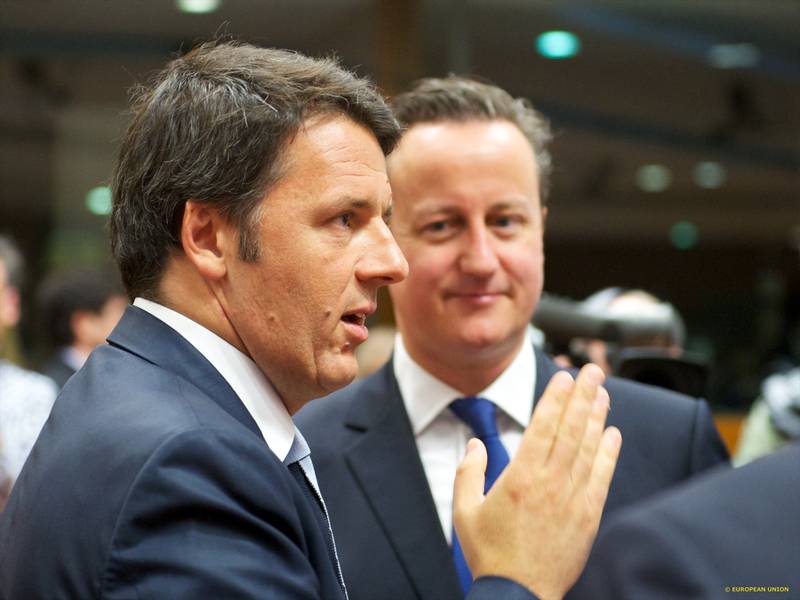 now. To Matteo Renzi the current EU legislature is in the past. We need to think about the future, he urged.
now. To Matteo Renzi the current EU legislature is in the past. We need to think about the future, he urged.
The EC presented a month ago its more detailed plans for relocation and resettlement of a total of 60 thousand people from Italy and Greece, mainly refugees from Syria and Eritrea. The criteria for the mandatory quotas are based on population and GDP of the country. According to these quotas, Bulgaria must accept 343 people relocated from Italy and 229 from Greece. And the resettlement portion of Bulgaria is 216 people. The largest portion is for Germany, followed by France and Great Britain. Bulgaria and Hungary’s special statute gives them the opportunity not to take part in the scheme. Croatian Prime Minister Zoran Milanović was displeased but said he would not deny help. “We do not see the refugees as sacks of potatoes but as people and will do what we can to help”, he said. The Croatian quota is larger than the Bulgarian.
According to EC calculations, Zagreb should relocate 448 people from Italy, 299 from Greece and resettle 315. The Commission’s proposal provoked sharp comments, especially in newer member states and most of all Hungary, which stated that it would start to build a retaining wall along its border with Serbia. Hungary’s attitude towards migration and other issues even provoked a debate in the European Parliament with the participation of Prime Minister Viktor Orbán. It did not help and the Hungarian government continued with unilateral actions with the cherry on the cake being the unilateral suspension of the European asylum program by Budapest just days before the June summit. The Hungarian government motivated its decision by pointing again out that illegal immigration is a crime. “Hungary will not allow for crimes to be committed at the border.”
Bulgarian Prime Minister Boyko Borisov announced that Thursday night he shared the opinions of Orbán and Tsipras on the subject. “The voluntary principle held because we feel that in a unified Europe, when we all have a responsibility towards humanitarian missions, there is no need for quotas, for the word ‘mandatory’. This contradicts with the idea of a democratic, humanitarian, good Europe”, said Mr Borisov.
Eurozone’s future
There is no future for the Eurozone without a resolution to the Greek problem. This is the conclusion to be drawn from the brief discussion of the report of the five presidents. Prime Minister Borisov explained that we need to see what is to be done with Greece before any discussion on the Eurozone’s future.
Translated by Stanimir Stoev
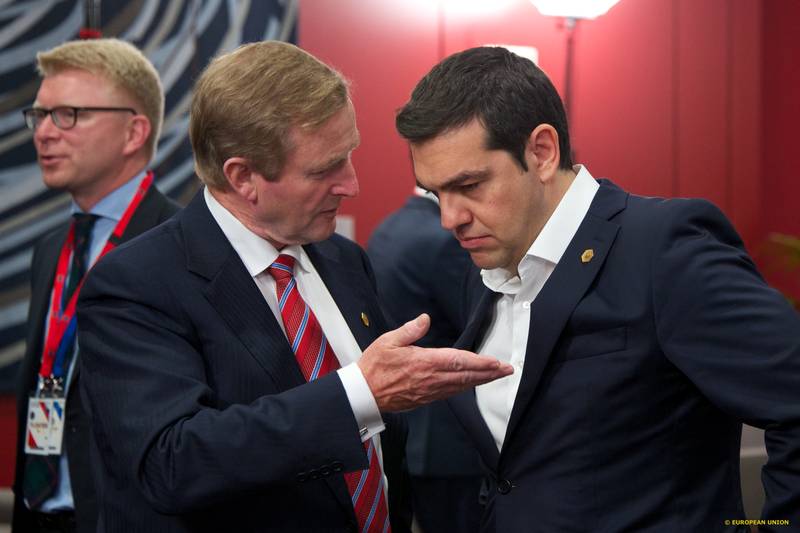 Enda Jenny, Alexis Tsipras | © Council of the EU
Enda Jenny, Alexis Tsipras | © Council of the EU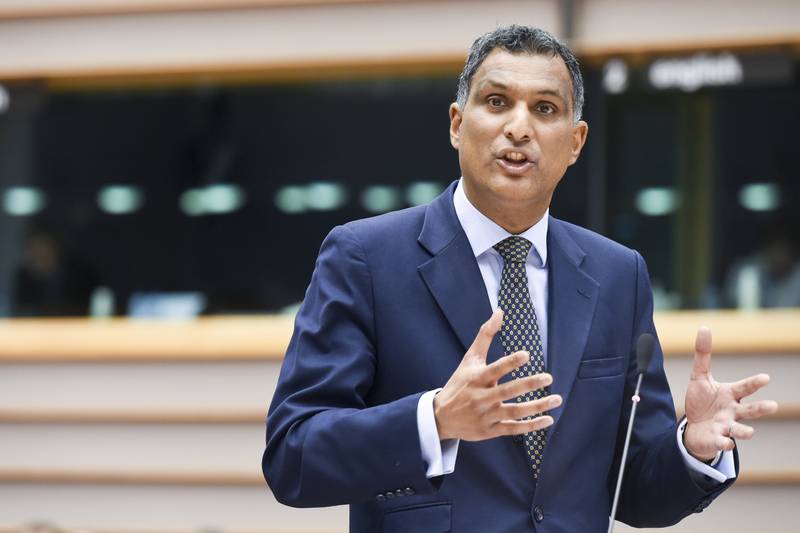 Syed Kamall | © European Parliament
Syed Kamall | © European Parliament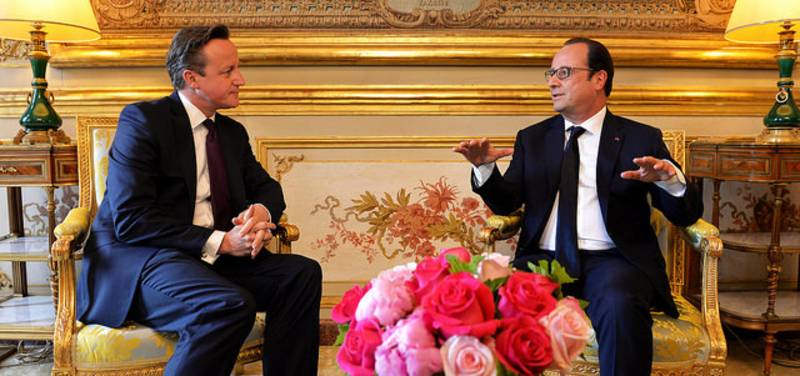 David Cameron, Francois Hollande | © UK Government
David Cameron, Francois Hollande | © UK Government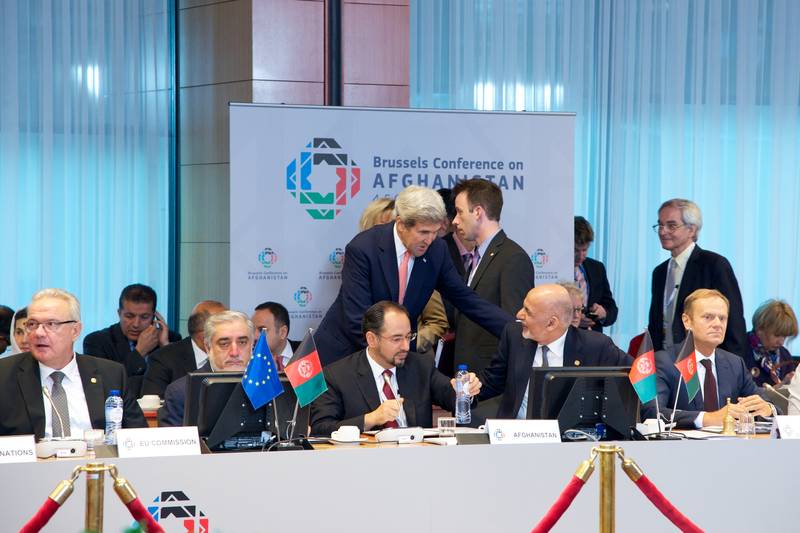 | © Council of the EU
| © Council of the EU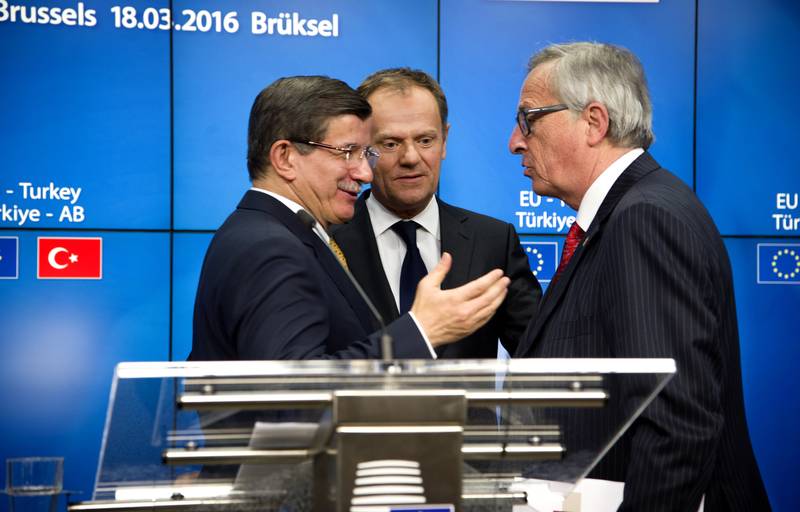 Davutoglu, Tusk, Juncker | © Council of the EU
Davutoglu, Tusk, Juncker | © Council of the EU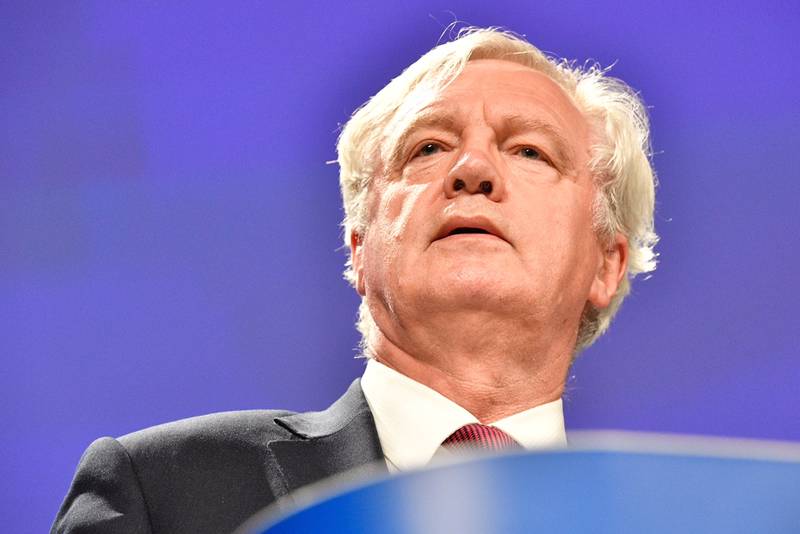 David Davis | © European Commission
David Davis | © European Commission Angela Merkel | © Council of the EU
Angela Merkel | © Council of the EU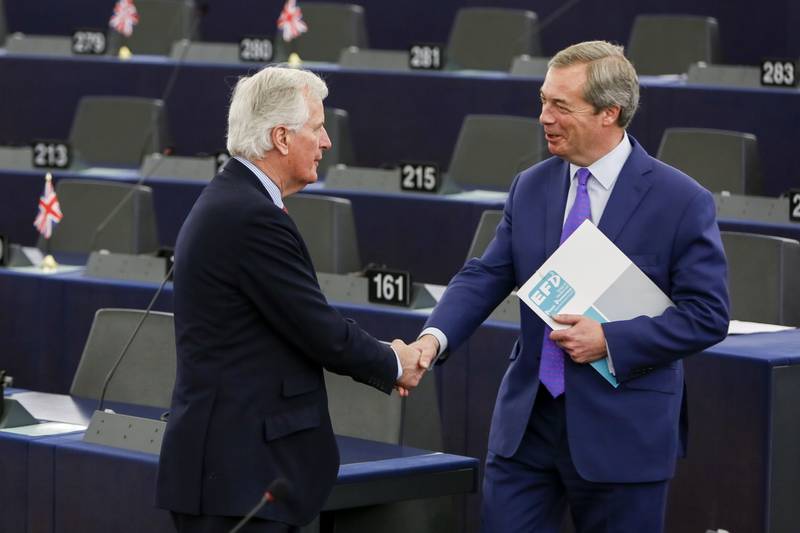 Michel Barnier, Nigel Farage | © European Parliament
Michel Barnier, Nigel Farage | © European Parliament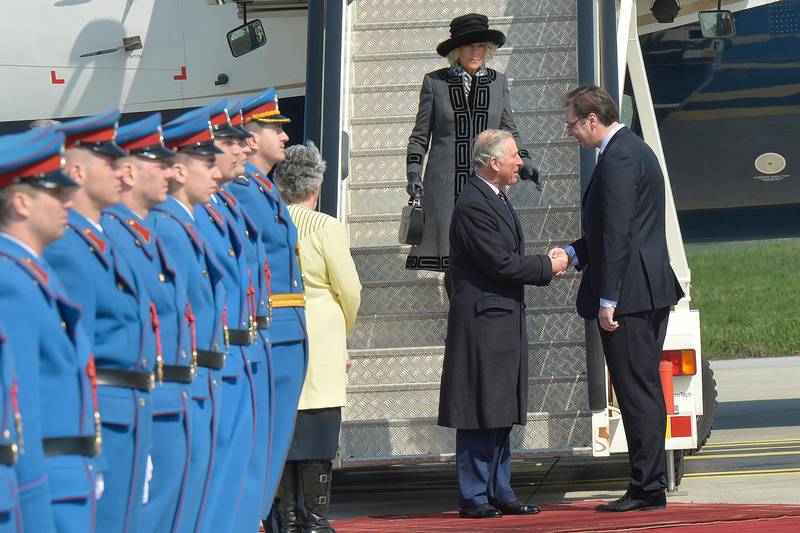 | © Vlada RS
| © Vlada RS